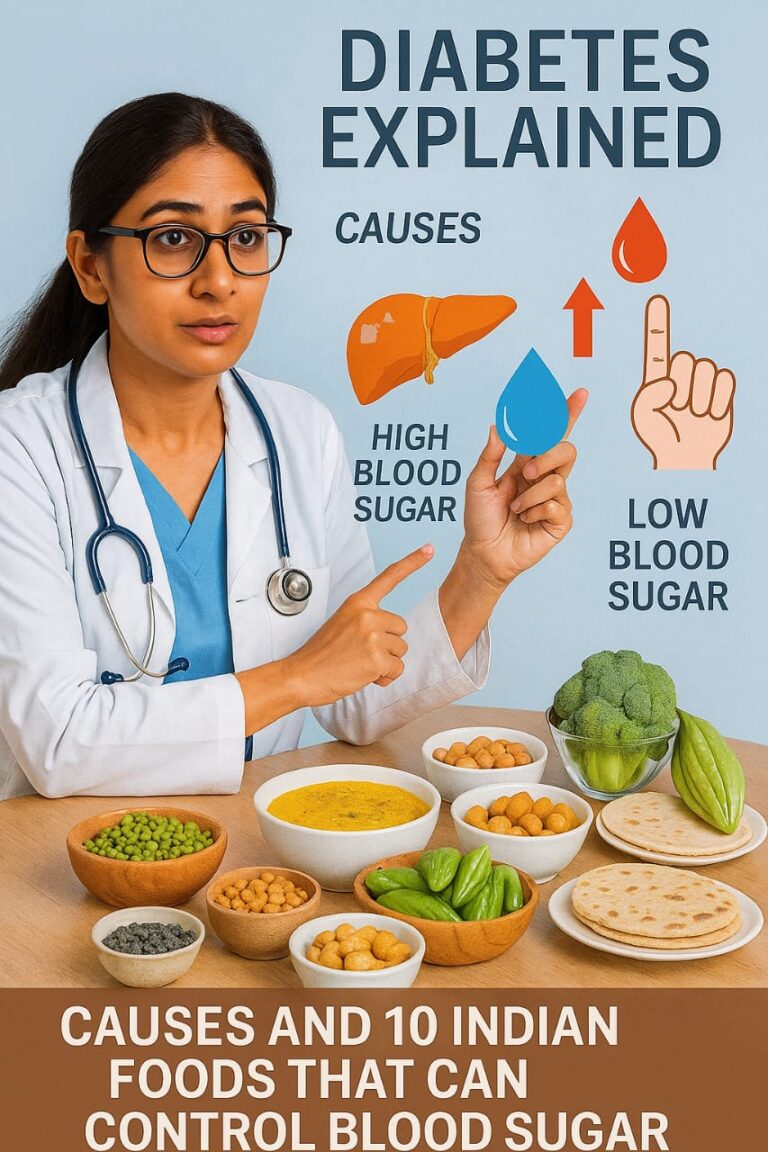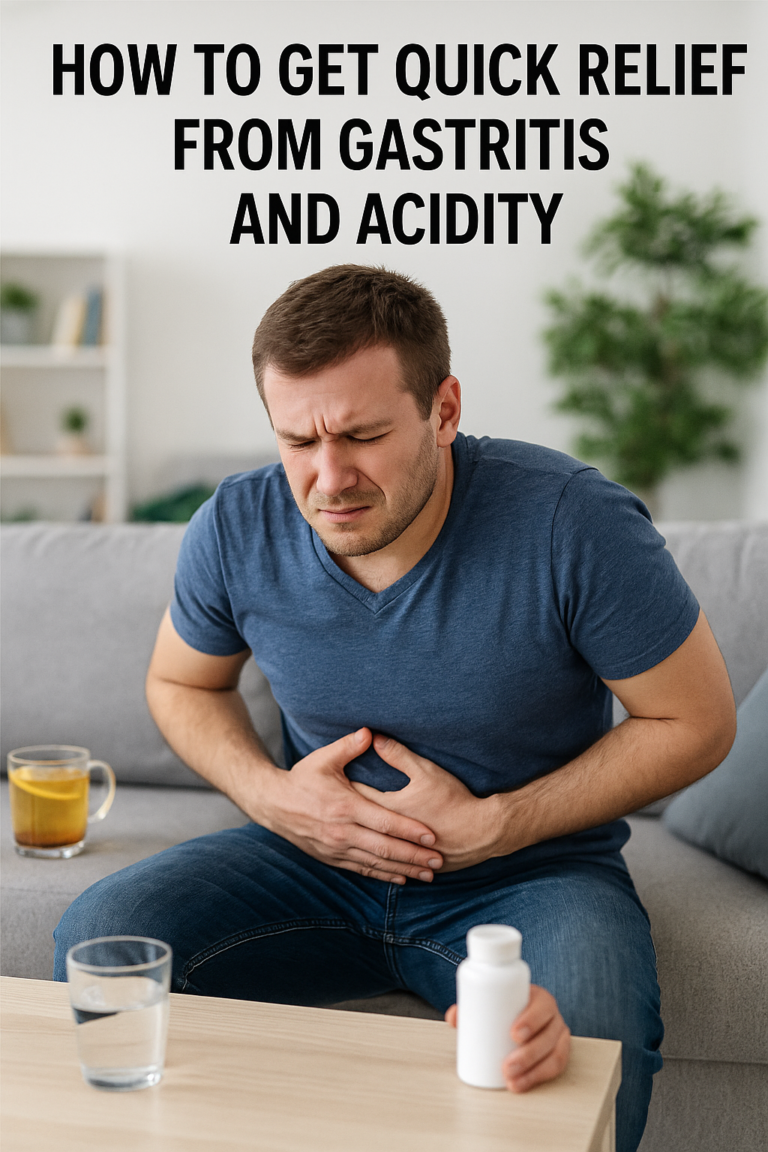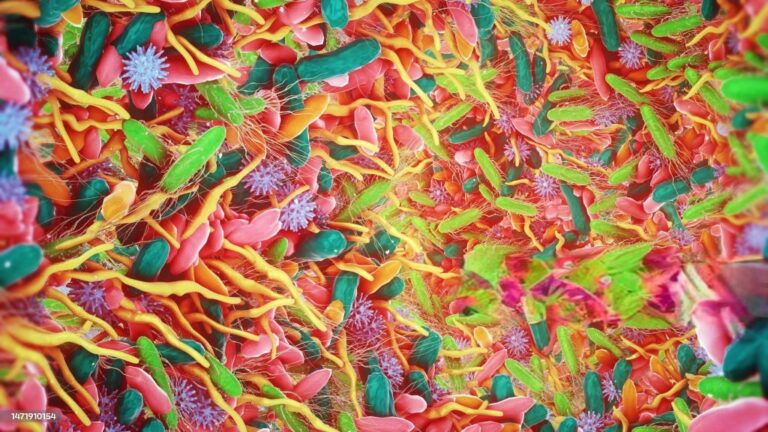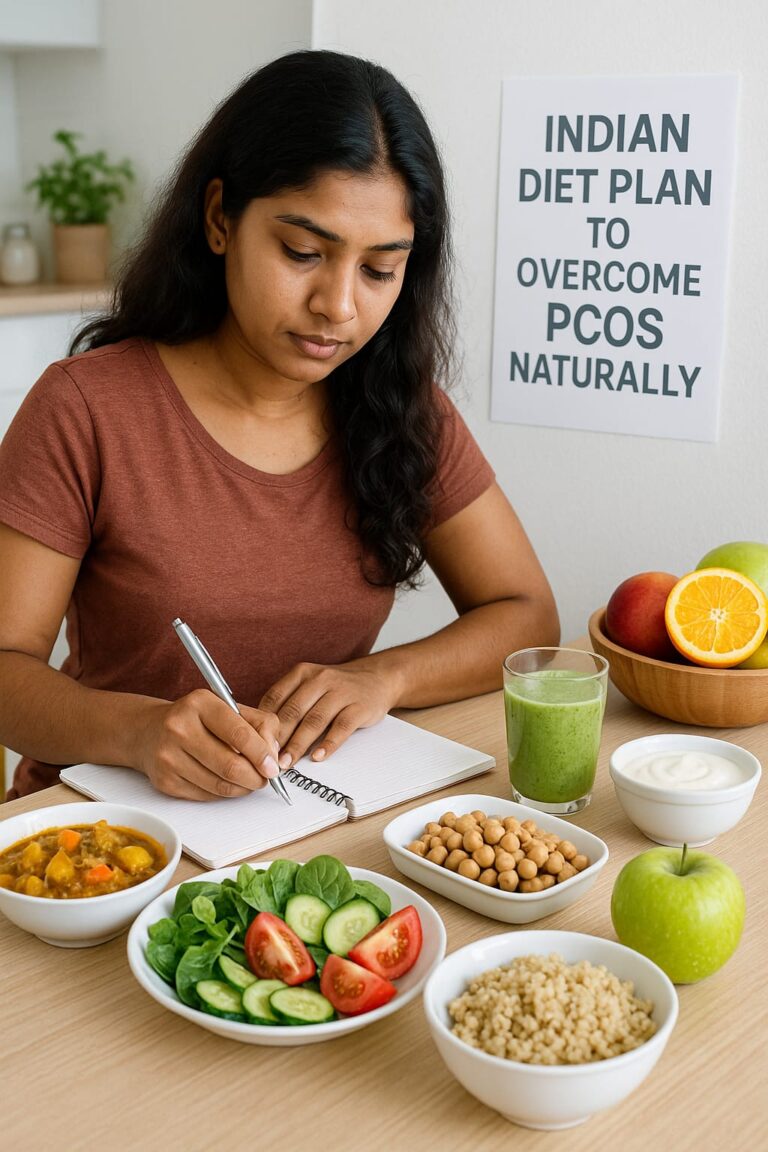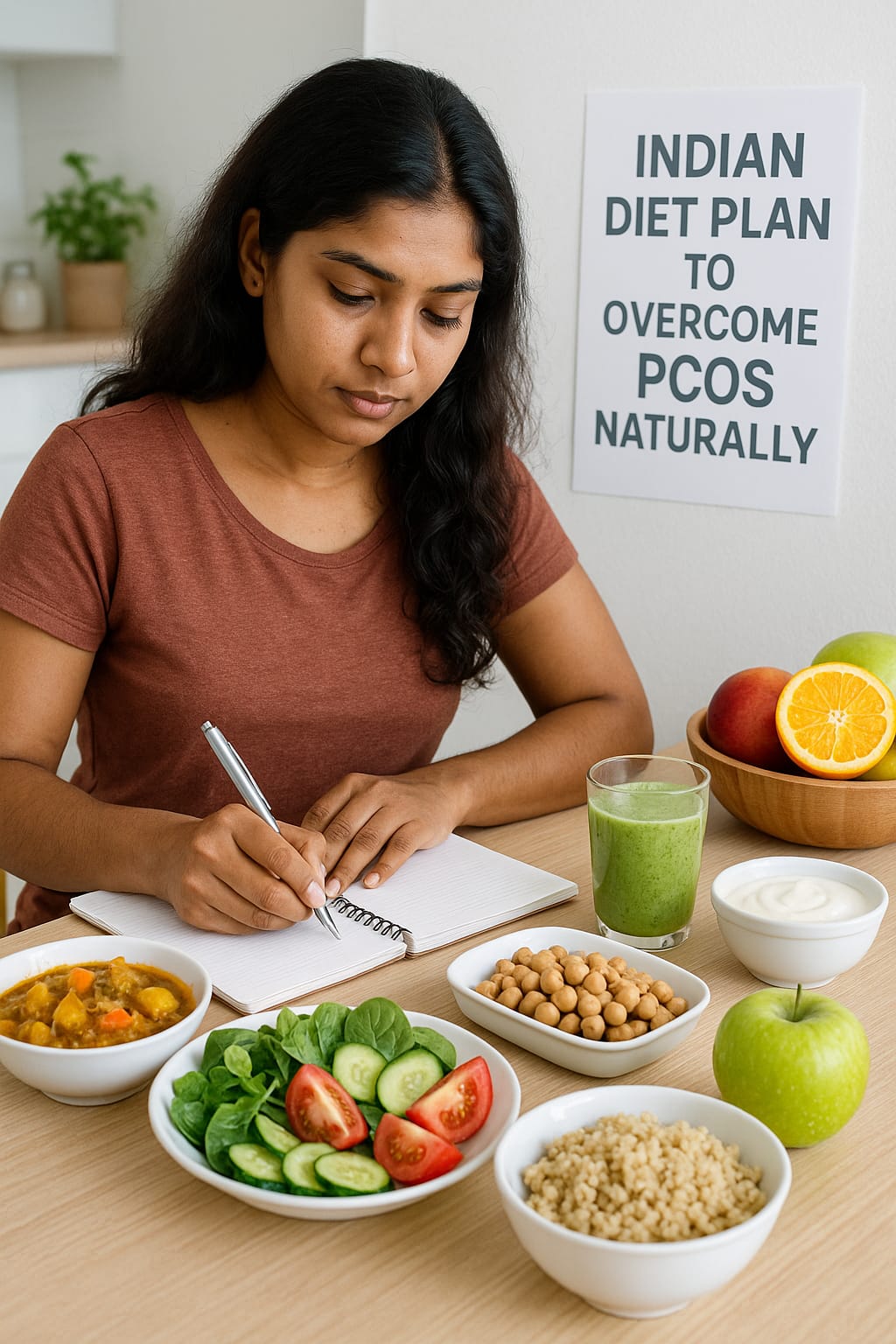
Planning a natural PCOS diet with Indian healthy foods and lifestyle changes
1 in 5 Indian women is affected by PCOS, a common hormonal disorder that can feel overwhelming.
Three months without periods: those three months had been the longest of my life. When my periods did come back, they lasted for 15 consecutive days. Sitting in that doctor’s room, I heard words that every woman fears: It can be thyroid problems, your sedentary lifestyle, exam stress, or perhaps PCOS.
PCOS. Even hearing those letters can feel overwhelming. While it isn’t life-threatening, the stress of irregular cycles can be harder to handle than period pain. If you’ve just learned you have PCOS, remember you’re not alone.
Research shows that lifestyle changes are the first step in managing PCOS, and an Indian diet can help you naturally manage symptoms.
Before we talk about diet and lifestyle tips, let’s first understand what PCOS means.
WHAT IS PCOS?
Polycystic ovary syndrome (PCOS) is a common hormonal disorder that affects 1 in 5 women of reproductive age worldwide. Think of it as your body’s hormones getting a bit mixed up, causing three main issues:
Hyperandrogenism: Your body produces more male hormones than usual
Anovulation: Infrequent or absent ovulation (leading to period issues)
Insulin resistance: Your body struggles to process sugar properly
What Causes PCOS?
- Genetics: PCOS often runs in families.
- Insulin resistance: This can throw your hormones out of balance.
- Inflammation: Ongoing, low-level inflammation in the body may play a role.
- Lifestyle factors: Stress, poor diet, and not getting enough exercise can contribute.
Common PCOS Symptoms:
- Irregular periods – Missing periods or very heavy/long cycles
- Weight gain – Especially around the belly area
- Hair issues – Excess facial/body hair or hair thinning on the head
- Skin problems – Acne, dark patches (especially neck/armpits)
- Mood changes – Depression, anxiety, mood swings
- Fatigue– Feeling tired even after adequate sleep
- Difficulty conceiving – Due to irregular ovulation
Best diet for PCOS in India
Clinical studies have shown the benefit of Indian spices such as cinnamon, fenugreek, ginger, turmeric, and cumin in enhancing sugar control in the blood. Conventional Indian cooking naturally yields:
- Low glycemic foods: Dal, whole grains, vegetables
- Anti-inflammatory spices: Turmeric, ginger, cinnamon
- High-fiber foods: Legumes and whole grains
- Balanced diet: Proteins, healthy fats, complex carbohydrates
Science-Backed Indian Spices for PCOS
-
Turmeric (Haldi) – The Golden Healer
Clinical trials indicate that curcumin enhances metabolic markers and androgen levels in women with PCOS. Women receiving curcumin for 8 weeks had significant reductions in body weight and waist circumference.
How to use: Boil 1/2 tsp turmeric powder in water, take it warm in the morning.
- Cinnamon (Dalchini): Clinical studies show cinnamon’s blood sugar-reducing and insulin-sensitizing properties. Various doses proved remarkable advantages in diabetes care.
How to use: Sprinkle cinnamon powder on oatmeal or add cinnamon sticks to tea.
- Fenugreek (Methi): Fenugreek is rich in substances that regulate hormones and enhance ovulation.
How to use: Soak Methi seeds overnight, drink the water in the morning.
7-Day Indian PCOS Diet Chart
Research shows that eating foods with a low glycemic index can help manage PCOS.
Here’s a sample plan (aim for 1,600-1,900 kcal depending on activity level):
Day 1: Foundation
| Time | Meal/Snack | Details |
| Early Morning | Turmeric Water | 1/2 tsp turmeric boiled in water |
| Breakfast | Moong Dal Chilla | With mint chutney + green tea |
| Mid-Morning | Snack | Soaked almonds |
| Lunch | Complete Meal | Brown rice + masoor dal + bhindi sabzi + cucumber raita |
| Evening | Snack | Herbal tea + 2-3 walnuts |
| Dinner | Complete Meal | Mixed vegetable soup + 1 multigrain roti + palak paneer |
Day 2: Spice Power
| Time | Meal/Snack | Details |
| Early Morning | Methi Seed Water | Soaked overnight |
| Breakfast | Steel-Cut Oats | With cinnamon + chopped apple + green tea |
| Mid-Morning | Snack | Green apple slices |
| Lunch | Complete Meal | Quinoa pulao + rajma curry + mixed salad |
| Evening | Snack | Ginger tea + roasted chana (1/4 cup) |
| Dinner | Complete Meal | Bottle gourd soup + 1 bajra roti + grilled paneer |
Days 3-7: Constant Pattern
| Aspect | Recommendation |
| Meal Timing | Every 3-4 hours for regular meals |
| Plate Composition | 1/2 vegetables + 1/4 protein + 1/4 complex carbs |
| Food Focus | Low glycemic foods |
| Variety Strategy | Switch vegetables, dal types, and spice blends |
Optimal Foods for PCOS Control
Food to add to your PCOS diet
- Complex Carbohydrates: All dal varieties, millets (bajra, jowar, ragi), brown rice, quinoa
- Quality Proteins: Fresh paneer, Greek yogurt, legumes, eggs (if non-vegetarian)
- Anti-inflammatory Foods: Green leafy vegetables, colorful vegetables, berries
- Healthy Fats: Nuts, seeds, cold-pressed oils, ghee (in moderation)
Food to avoid during PCOS
- High Glycemic Foods: White rice, refined wheat, sweet cereals, processed snacks.
- Pro-inflammatory Foods: fried foods, processed meats, trans fats, and excess dairy (some women with PCOS may be sensitive to dairy, so pay attention to your body’s response).
Critical Success Factors
Meal Timing Matters
Study reveals how you eat matters as much as what you eat:
- Have breakfast within 2 hours of wake time
- Keep 3-4 hour breaks between meals
- Make lunch your biggest meal
- End dinner 2-3 hours before sleeping
Lifestyle Incorporation
Weight and lifestyle control are first-line treatments for PCOS:
- Physical Exercise: 30 minutes a day of walking at a minimum
- Stress Reduction: Yoga, meditation, sufficient sleep (7-8 hours)
- Consistency: Routine regularly aids in hormone regulation
Supplements with Research Evidence
Whole foods are the first choice, but these supplements do have evidence behind them:
- Inositol: Increases insulin sensitivity
- Vitamin D: Most PCOS women are deficient
- Omega-3: Inflammation reduced
Always consult with healthcare professionals before using supplements.
When to Get Medical Attention
See a doctor right away if you have:
- Missed periods for over 3 months
- Severe mood swings or depression
- Excess hair growth or baldness
- Inability to lose weight despite changing diet
Monitoring Your Progress
Maintain a simple diary to track menstrual cycle patterns, daily energy levels, reactions to food, and sleep quality. To get a clearer picture of hormonal changes, consider scheduling quarterly lab tests to measure fasting insulin and free testosterone levels. You may start seeing improvements in 12 weeks, but allow 3-6 months for maximal hormonal change.
Creating Long-Term Success
The key to managing PCOS with your diet isn’t being perfect. It’s about being consistent. Focus on:
- Add more good foods – Focus on including healthy options rather than just removing foods
- Celebrate small wins – Notice improvements like better energy or clearer skin
- Be patient with your body – Hormonal changes take time to show results
- Get family on board – Ask loved ones to support your healthy eating journey
Your PCOS Success Story Begins Today
With steady food choices, those stressful irregular cycles can become a thing of the past.
PCOS does not have to rule your life. With evidence-based Indian food, helpful spices, and regular habits, you can get hormonal equilibrium. Each healthy meal is a step towards regular cycles and improved health.
Don’t forget, millions of women effectively control PCOS by modifying their diets. You can be one of them as well.
Frequently Asked Questions
How long will it take to notice improvements in PCOS with an Indian diet plan? Evidence indicates remarkable improvements in inflammatory, hormonal, and metabolic status following 12 weeks of anti-inflammatory diet therapy. Most women report improvements in energy levels in 2-4 weeks, whereas menstruation regulation usually happens within 3-6 months for more profound hormonal modifications.
What are the best Indian spices for PCOS based on research?
Clinical studies have shown the benefits of cinnamon, fenugreek, ginger, turmeric, and cumin in improving glycemic control. Clinical trials specifically indicate that curcumin (turmeric) enhances metabolic parameters and androgen status in women with PCOS. These spices are easily incorporated into Indian daily cooking.
Can I reverse PCOS entirely on diet alone?
Although PCOS can’t be cured, studies all agree that lifestyle modifications are first-line treatments. Most women get normal cycles and regulate symptoms by making changes in their diet. Nonetheless, collaborate with health professionals for total management, particularly if symptoms are severe.
Is this meal plan safe when trying to conceive with PCOS?
Yes, this research-driven regimen is centered around whole foods for reproductive health. Fenugreek has phytochemicals that can potentially balance hormones and enhance ovulation. But if actively attempting to conceive, coordinate with a healthcare practitioner for individualized monitoring and advice.
What if I still have irregular periods after 3 months of adhering to this diet?
Although dietary interventions are most effective, in case of missed periods for over 3 months, even after the diet plan, an immediate consultation with a healthcare provider is necessary. You might require additional interventions, such as medication or supplements, along with dietary interventions to ensure better results.
References
- BMC Endocrine Disorders. (2023). The effect of curcumin on metabolic parameters and androgen levels in women with polycystic ovary syndrome. Available at: https://bmcendocrdisord.biomedcentral.com/articles/10.1186/s12902-023-01295-5
- MDPI Nutrients. (2025). The role of lifestyle interventions in PCOS management: A systematic review. Available at: https://www.mdpi.com/2072-6643/17/2/310
- Scientific Reports. (2024). Effects of an anti-inflammatory diet intervention to enhance diet quality in PCOS. Available at: https://www.nature.com/articles/s41598-024-54100-1
- PMC Nutrition Research. (2021). Effects of curcumin on glycemic control and lipid profile in polycystic ovary syndrome. Available at: https://www.ncbi.nlm.nih.gov/pmc/articles/PMC7924860/
- Diabetes Care Journal. (2003). Cinnamon improves glucose and lipids in people with type 2 diabetes. Available at: https://diabetesjournals.org/care/article/26/12/3215/21858/
About the Author
Vaishnavi Salunke is an MSc. Bioinformatics student. She specializes in making complex scientific concepts accessible to general audiences and has a particular interest in emerging technologies that improve human lives.
